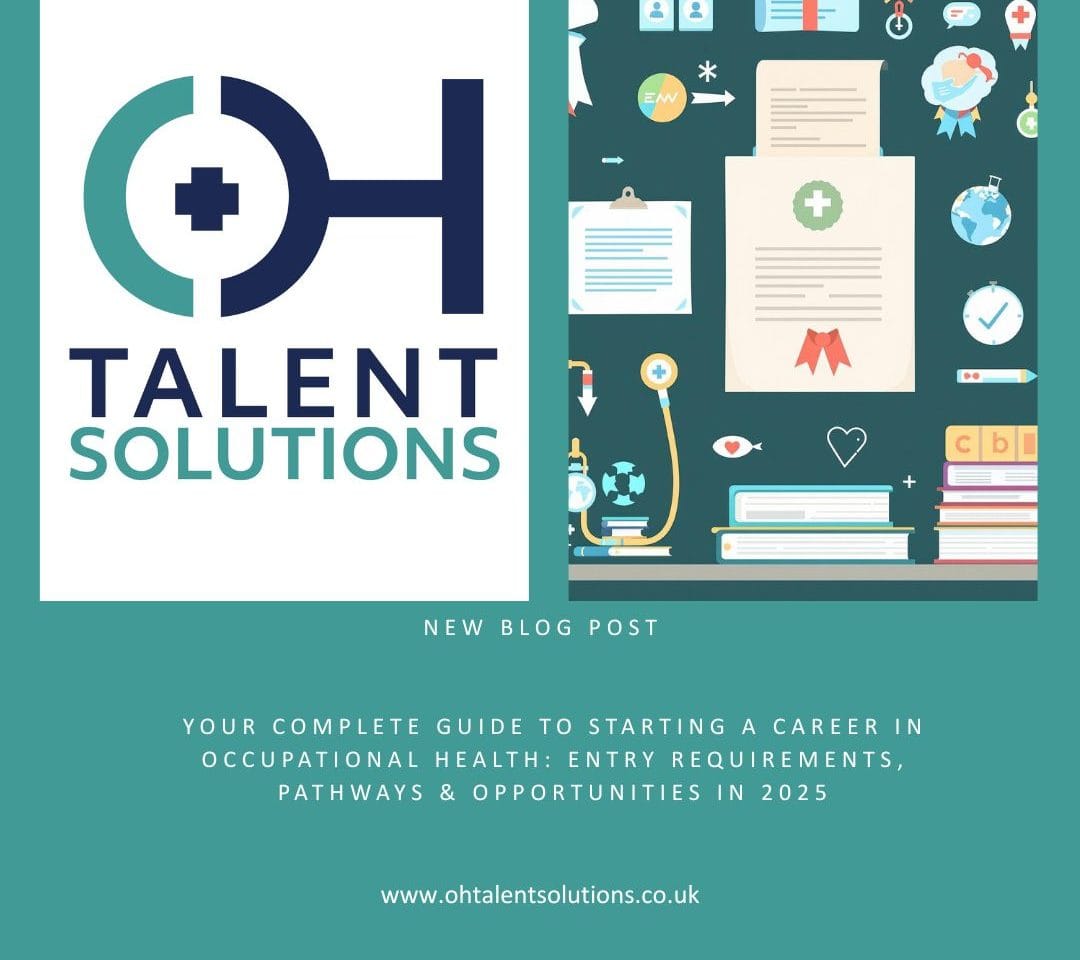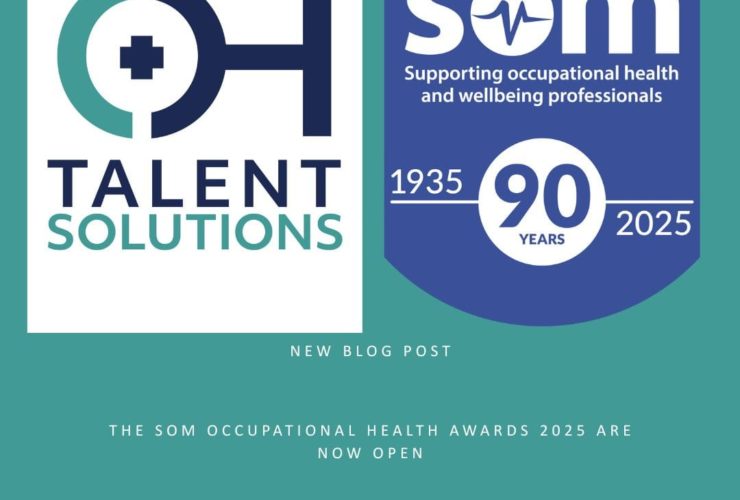Your Complete Guide to Starting a Career in Occupational Health: Entry Requirements, Pathways & Opportunities in 2025
Why Choose a Career in Occupational Health?
A Rapidly Growing Sector
The occupational health (OH) sector in the UK is expanding quickly. It offers diverse, rewarding roles for healthcare professionals who want to make a real impact on workplace wellbeing.
Whether you are a newly qualified nurse, an experienced clinician seeking a change, or new to healthcare, occupational health provides an ideal path. The work combines clinical expertise with problem-solving, business awareness, and a strong sense of purpose.
According to the Health and Safety Executive (HSE), work-related ill health costs the UK economy billions each year. Therefore, demand for qualified occupational health professionals continues to rise sharply.
Understanding the Occupational Health Landscape
Occupational health specialists support employers by keeping staff safe, healthy, and productive. They work in NHS trusts, private clinics, and large corporate organisations. Their focus includes health surveillance, risk assessment, case management, and preventative healthcare.
The Faculty of Occupational Medicine defines occupational medicine as “the branch of medicine concerned with people at work and the prevention of diseases and injuries caused by work.”
Because the field is broad, it suits many different backgrounds. Nurses, doctors, physiotherapists, and technicians all play key roles in improving workforce wellbeing.
Key Roles in Occupational Health
Occupational Health Advisors
Advisors conduct health assessments, evaluate workplaces, and guide employees safely back to work.
Occupational Health Nurses
These professionals provide direct clinical care and promote healthy working environments.
Occupational Health Physicians
Doctors specialising in occupational medicine diagnose work-related conditions and help employers manage complex cases.
Occupational Health Technicians
Technicians assist clinical teams with testing, screening, and data collection.
Case Managers
They coordinate rehabilitation programmes and ensure smooth, timely return-to-work processes.
Entry Requirements and Pathways
For Occupational Health Nurses
Valid NMC registration
Minimum two to three years of post-registration experience
Excellent communication and assessment skills
For Occupational Health Advisors
A relevant healthcare qualification, such as nursing or physiotherapy
Preferably a specialist OH nursing qualification
Experience in case management or clinical assessment
The Occupational Health Nurses Professional Network provides excellent guidance on education and progression routes.
For Occupational Health Physicians
Full GMC registration
Completion of Occupational Medicine ST3 training
MFOM membership of the Faculty of Occupational Medicine
Strong clinical background and leadership experience
Ongoing Professional Development
Educational Qualifications
The Society of Occupational Medicine (SOM) offers valuable information about qualifications and training options:
Diploma in Occupational Health – essential for career progression
MSc in Occupational Health – ideal for senior or management positions
Continuing Professional Development (CPD)
To stay competitive, OH professionals should update their skills regularly. Key development areas include:
Health surveillance techniques following HSE guidance
Workplace risk assessment and ergonomic evaluation
Mental health awareness and stress management
Regulatory compliance with HSE and GDPR requirements
In addition, the Chartered Institute of Personnel and Development (CIPD) publishes valuable insights on wellbeing and workplace health trends.
Market Opportunities and Salary Expectations
Current Trends
The market for occupational health services continues to grow. Employers are focusing on prevention, early intervention, and mental health support. In addition, digital health technology is improving access to remote assessments.
The NHS Long Term Plan promotes prevention and wellbeing, creating new career opportunities for OH professionals across all sectors.
Typical Salary Ranges (2025)
According to NHS pay scales and industry surveys:
OH Technicians: £22,000 – £30,000
OH Advisors: £28,000 – £47,000
OH Nurses: £30,000 – £40,000
Senior OH Advisors: £40,000 – £55,000
OH Physicians: £60,000 – £130,000+
Finding Your First Role
Where to Search
Specialist agencies such as OH Talent Solutions
The NHS Jobs website
The Society of Occupational Medicine job board
LinkedIn and healthcare-specific job platforms
Direct applications to occupational health providers
Application Tips
Highlight transferable clinical skills and assessment experience
Demonstrate knowledge of workplace health principles
Show enthusiasm for preventative healthcare
Emphasise clear communication and empathy
Include relevant health and safety certifications
Building and Growing Your Career
Networking and Development
Career growth in occupational health relies on continuous learning. Professionals should:
Join the Society of Occupational Medicine
Attend national conferences and CPD events
Network with peers through online forums
Seek mentorship from experienced OH leaders
Areas for Specialisation
Mental health and wellbeing
Ergonomics and workplace design
Health surveillance programmes
Disability management
Occupational hygiene and safety
Understanding Legal and Regulatory Responsibilities
Every occupational health professional must understand the key legislation governing workplace safety and data protection:
Knowledge of these laws ensures compliance and supports best practice in every OH role.
Next Steps: Launching Your Career
Assess Your Skills: Review your current qualifications using the Skills for Health framework.
Identify Gaps: Determine what extra training or certifications you need.
Network Actively: Connect with other professionals in OH associations.
Apply for Entry-Level Roles: Gain experience through trainee or junior positions.
Invest in Learning: Enrol in accredited OH courses to strengthen your expertise.
Conclusion: A Career That Makes a Difference
A career in occupational health offers purpose, progression, and stability. With growing demand for wellbeing expertise, OH professionals are vital to the future of UK workplaces.
By gaining the right qualifications and practical experience, you can build a fulfilling, well-compensated career that supports healthier, happier employees.
Start Your Journey Today
Ready to take the first step?
📧 Email: info@ohtalentsolutions.co.uk
📞 Call: 02393 871 484
🌐 Visit: www.ohtalentsolutions.co.uk to explore current opportunities and register your CV.




